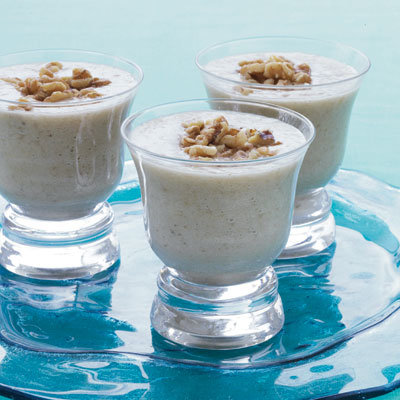Ten Tips for Healing Stomach Ulcers
Most ulcers are what the medical world terms as “peptic ulcers.” Peptic ulcers can happen in your stomach (“gastric ulcer”) or your small intestine (“duodenal ulcer”). Most ulcers happen in the stomach, although they can happen anywhere along your intestinal tract.
Think You Might Have an Ulcer?
Everyone has experienced stomach pain at some point or another, but how do you determine whether that stomach pain is caused by an ulcer or something less worrisome, like gas? Well, the symptoms of an ulcer are quite specific.
An ulcer will cause a sort of chronic burning or gnawing stomach pain, which is much different from the sharp, fleeting pain caused by minor digestive problems. Stomach pain caused by an ulcer will almost always show up 45 to 60 minutes after eating (though sometimes, ulcer pain can attack at night). Most people, when they feel this kind of pain, usually try eating or drinking to relieve their symptoms.
Ulcer pain can range from mild to severe. Sometimes an ulcer will also cause lower-back pain, headaches, a choking sensation, itching and nausea.
So what exactly happens when an ulcer develops in your stomach? An ulcer is a spot where the lining of the stomach and the tissue beneath it have been damaged. Stomach acids literally eat away at the stomach lining and leave an internal open wound. The problem is that your stomach lining can’t protect you from all those digestive acids and enzymes that your body normally uses to break down food. Instead, these acids and enzymes start to digest the stomach itself, and an ulcer forms.
Herbal Treatments for Stomach Ulcers
Many medical professionals believe that ulcers are caused by stress — particularly anxiety. Stress can increase your production of stomach acid. Research has also shown, however, that an ulcer may form as the result of an infection.
A certain type of bacteria called Helicobacter pylori (H. pylori for short) can live in the lining of your stomach, where it can cause damage to the lining and to the mucous layer that protects your stomach from digestive acids.
So here they are: 10 cures for treating a peptic ulcer.
Ten Cures for a Peptic Ulcer:
1. Aloe-vera Juice
You might want to start your healing regimen by taking aloe-vera juice. Aloe vera is good for pain relief and can help quicken your recovery. Buy aloe-vera juice at your local health-food store (remember that the juice must be “food grade”), and try taking four ounces of the juice daily.
2. Licorice
Licorice has been shown to promote the healing of gastric and duodenal ulcers in clinical trials. Licorice root is one of those all-purpose herbs. It fights inflammation. It attacks viral, bacterial and parasitic infections. It is also a good cleanser of the colon.
3. Rhubarb
Rhubarb is good for intestinal bleeding. Use rhubarb to help your digestive system, too. Rhubarb can act as a conveyer of “bile salts.” Bile salts pass from your liver to your intestine, where they help break down fats. When rhubarb reaches your stomach, it acts as a stimulant, increasing the flow of gastric juices. This helps with digesting the contents of the stomach.
4. Garlic
Garlic is high in sulfur compounds. These compounds are potent extractors of toxic heavy chemicals in your body. They bind with chemicals so that they can be excreted, instead of taking hold in your organs and causing damage. These sulfur compounds are also effective at protecting against oxidation and free radicals.
Garlic is also a natural antiseptic. It can be used both inside and outside the body to fight infection. Garlic can help lower your blood pressure and reduce bad cholesterol levels, too.
5. Vitamin K
Popeye made himself strong by eating spinach, but he probably didn’t know that he was also protecting himself against any number of diseases. Leafy green vegetables deliver more nutrients for fewer calories than any other food out there. They have vitamins, minerals, antioxidants and cancer-fighting “phytochemicals.”
6. Cabbage Juice
Drink cabbage juice every day. Studies show that a glass or two of cabbage juice daily can help your ulcer heal more rapidly. It turns out that cabbage juice is high in substances that protect your stomach’s mucous-membrane lining.
You can make your own cabbage juice in a juicer or grinder. Celery juice also contains factors that help heal ulcers.
7. Eat Soft Foods
If your symptoms are initially quite severe, try eating soft foods. Avocados, bananas, potatoes, squash and yams are all good choices. Well-cooked millet and/or rice can be added for a more complete meal.
If you have a bleeding ulcer, try organic baby food, which is free from any ingredients that may irritate your stomach lining further, as well as containing healthy vitamins and minerals.
8. Less Salt & Sugar
Salt and sugar will increase the amount of stomach acid that your body produces. Cook your own meals to avoid the often-excessive salt and sugar that are found in processed and prepared foods.
9. Alfalfa Juice
Alfalfa juice contains chlorophyll, which is a potent anti-ulcer treatment. Alfalfa juice can help alkalize stomach acid. It is thought to control the flow of “hydrochloric acid,” at the same time helping the gastric enzyme “pepsin.”
Chlorophyll is high in vitamin U — an anti-ulcer factor that clinical researchers have discovered exists in certain foods. You can purchase alfalfa juice at most health food stores.
10. No Cows’ Milk
Cows’ milk does neutralize existing stomach acid, but it also stimulates the production of more acid, so even though you may be tempted to drink a glass of milk when your stomach hurts, don’t do it. The protein and calcium in milk have been linked to the occurrence of ulcers.
Drink almond, rice or soy milk instead — or better yet, drink lots of water to dilute stomach acids and flush them out of your body.
There you have it: 10 remedies to help heal an ulcer. Just remember that with treatment, most peptic ulcers will heal. However, be patient. It may take eight weeks or longer for the healing to be complete.
Related Articles
-
Facts That You Need To Know About the African Mango Weight Loss Program
-
Fat Burning Exercises For Women
When it comes to fat burning many women just do aerobics or get on the
-
Eat Stop Eat Does It Work-Eat Stop Eat Review
Did you still worry about weight-loss? Recently, A new way to lose wei
-
Fatburningfurnace
Of all the weight loss program in the industry, why can Fat Burning
-
Fast Healthy Weight Loss Through Detoxification
Most dieticians recommend shedding excess pounds gradually via a long
-
My Doctor Ordered Me To Lose Weight Or Die!
If you would like to be fit over 40, learn the fastest and easiest way
- DON'T MISS
- May You Might want to Reduce Weight? Signs That You Might
- How To Keep Your Weight Loss Diet Interesting
- The 7-Day Healthy Carb Kickstart Plan
- Beyonce Lemonade Diet - A Favorite Weight Loss Remedy For Celebrities
- Fat Burning Furnace And Alcohol-Fat Burning Furnace Review
- Important tips to lose weight
- Weight Loss Basics -- Measuring Progress
- Why We Recommend You Should Read About Paleo Diet Review
- Swap Your Way Slim at Every Meal
- Hypothyroidism And Weight Loss




